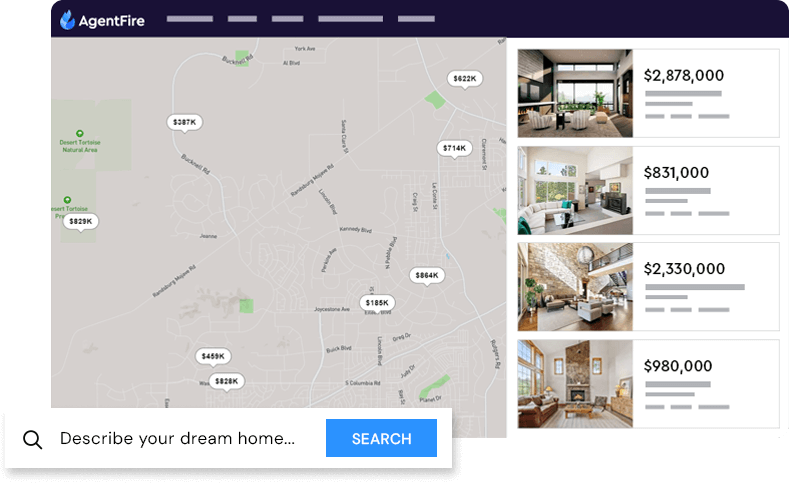Your essential MLS guide: Learn why the Multiple Listing Service matters for buyers, sellers, and real estate agents.
Industry Insights Lead Generation Seller Tactics
The Multiple Listing Service, or MLS, plays a central role in how real estate professionals share property information and work together. MLS platforms continuously evolve with updated policies, new technologies, and ongoing changes in how data is managed and accessed.
This guide explains the core purpose of the MLS, how it operates, and why it remains a key part of the real estate industry.
What Is a Multiple Listing Service?
A Multiple Listing Service (MLS) is a private database used by real estate professionals to share detailed information about properties for sale. Only licensed participants, such as agents and brokers, can access and contribute to this data.
MLSs first originated in the late 1800s when real estate professionals began sharing property listings with one another to help match buyers with homes. Over time, this informal exchange became a structured system with standardized rules and digital platforms.
Today, MLSs operate as collaborative networks. They allow professionals to share property data, offer compensation for cooperation, and ensure accurate listing information across local markets.
- Data Sharing: MLSs contain comprehensive details about properties including price, square footage, photos, and status updates.
- Cooperative Framework: Agents agree to work together and compensate each other when they help sell another agent’s listing.
- Regional Focus: Each MLS serves a specific geographic area with its own rules and membership requirements.
MLSs are typically managed by real estate associations or regional organizations. Each MLS follows a set of policies and rules, often based on guidelines set by the National Association of REALTORS®.
Why the MLS Matters for Buyers and Sellers
The MLS creates a level playing field where properties get maximum exposure to potential buyers. For sellers, this means their home is shown to all agents working with qualified buyers in the area. For buyers, it means access to the most complete set of available properties through their agent.
Without the MLS, buyers would need to contact multiple brokerages individually to see all available homes, and sellers would miss out on exposure to many potential buyers.
The MLS also ensures data accuracy. When a property is listed, specific details must be verified and updated promptly. This creates a reliable source of information about what’s actually available and at what price.

Here’s why the MLS remains essential in today’s market:
- Verified Information: Listings are entered by licensed professionals who follow strict rules about accuracy
- Complete Market View: Includes properties from all participating brokerages in one searchable database
- Historical Data: Provides records of past sales, price changes, and market trends
- Professional Access: Offers tools and information not available on public websites
How an MLS Works and Who Can Join
The MLS operates through a membership structure. To join, you typically need:
- An active real estate license
- Affiliation with a participating broker
- Membership in the local REALTOR® association (in most areas)
- Payment of required fees
Members can add listings, search properties, and access market data. The system is designed for cooperation between professionals, with clear rules about how information is shared and updated.
Most MLSs charge both initial setup fees ($250-500) and ongoing monthly dues ($25-75). These costs cover database access, technical support, and system maintenance.
When an agent lists a property in the MLS, they must:
- Enter the listing within a specific timeframe (usually 1-3 business days after signing the listing agreement)
- Include required photos and property details
- Specify the compensation offered to a buyer’s agent
- Update the status promptly when changes occur (price changes, pending sale, etc.)
Breaking these rules can result in fines or even temporary suspension from the MLS.
Essential MLS Policies
The MLS landscape includes several important policy updates that affect how listings are managed and shared:
Compensation Transparency
Recent legal settlements have changed how agent compensation is handled. While the total commission remains private between seller and listing agent, the amount offered to buyer’s agents must be clearly displayed in the MLS.
This change promotes transparency while still allowing sellers and their agents to negotiate the total commission privately.
Data Security Requirements
MLSs now require stronger security measures, including:
- Multi-factor authentication for all users
- Restrictions on data downloads and sharing
- Regular security audits and compliance checks
These measures protect sensitive property and client information from unauthorized access or misuse.
Coming Soon and Off-Market Listings
The Clear Cooperation Policy requires that properties marketed to the public must be submitted to the MLS within one business day. This policy addresses “pocket listings” (properties marketed privately without MLS exposure).
Properties can still be kept off the MLS, but only if they’re not publicly marketed in any way. This ensures that all publicly advertised properties are available to all MLS participants.
Using MLS Data to Build Your Real Estate Authority
Smart agents use MLS data to create valuable content that demonstrates their market knowledge. This might include:
- Monthly market reports showing trends in prices, inventory, and days on market
- Neighborhood guides with recent sales data and average prices
- Comparative analyses between different areas or property types
This content can be shared through your website, social media, email newsletters, or client presentations. By translating raw MLS data into useful insights, you position yourself as a knowledgeable local expert.
| Content Type | MLS Data Used | Client Benefit |
|---|---|---|
| Market Report | Sales prices, days on market, inventory levels | Understanding current market conditions |
| Neighborhood Guide | Recent sales, price trends, property types | Comparing areas for potential moves |
| Price Analysis | Comparable sales, price per square foot | Setting realistic expectations for buying/selling |
When creating content based on MLS data, remember to:
- Focus on trends rather than specific addresses (unless they’re your listings)
- Update information regularly to maintain accuracy
- Add your own insights to the raw numbers
- Present information in an easy-to-understand format
MLS Alternatives and Pocket Listings
The Clear Cooperation Policy has significantly reduced off-market listings by requiring publicly marketed properties to be submitted to the MLS. This policy aims to ensure all buyers have fair access to available properties. While the MLS remains the primary system for listing properties, alternatives do exist:
Pocket listings
Pocket listings are properties marketed privately without being entered in the MLS. They’re typically shared through agent networks or exclusive listing services.
- Benefits: Privacy for sellers, potential for faster sales in some cases
- Drawbacks: Limited exposure may result in lower sale prices, potential conflicts with MLS rules
For Sale By Owner (FSBO)
FSBO listings occur when sellers market their homes directly without an agent. These properties don’t appear in the MLS unless the seller works with a flat-fee MLS service.
Coming Soon
A ‘Coming Soon’ status allows agents to generate interest in a property before it’s fully active in the MLS. This status has specific time limits and restrictions on showings.
The Future of MLS Technology
MLS platforms are evolving rapidly with new technologies reshaping how property data is accessed and used:
AI and Predictive Analytics
Artificial intelligence is transforming how agents use MLS data. Modern systems can:
- Estimate property values based on hundreds of factors
- Match buyers with properties based on their preferences and behavior
- Identify market trends before they become obvious
These tools help agents work more efficiently and provide better service to clients.
Mobile-First Access
Today’s MLS platforms prioritize mobile access, allowing agents to:
- Add and update listings from their phones
- Receive instant notifications about new properties
- Schedule showings while on the go
- Share listing information directly with clients
This mobile focus reflects how agents actually work today, moving between properties and client meetings throughout the day.
Regional Consolidation
Many smaller MLSs are merging to create larger regional databases. This consolidation:
- Reduces duplicate listings across neighboring areas
- Creates more consistent data standards
- Lowers costs through shared infrastructure
- Provides agents with access to wider market data
For agents working across multiple communities, these larger MLSs eliminate the need for multiple memberships and logins.
Maximizing Your MLS Membership
To get the most value from your MLS membership:
- Learn the system thoroughly: Most MLSs offer training sessions or tutorials to help you navigate the platform efficiently.
- Use advanced search features: Go beyond basic criteria to find exactly what your clients need.
- Set up automated alerts: Create saved searches that notify you when matching properties hit the market.
- Study the data: Regularly review market statistics to spot trends and opportunities.
- Follow the rules: Understand and comply with all MLS policies to avoid penalties.
Your MLS membership is more than just access to listings—it’s a powerful tool for market analysis, client service, and professional cooperation.
Taking the Next Step
The MLS remains the foundation of professional real estate practice in 2025. By understanding how it works and using it effectively, you can provide better service to your clients and build a stronger business.
Remember that the MLS is just one part of your professional toolkit. Combining MLS data with a strong online presence helps you translate that market knowledge into meaningful connections with potential clients.
Ready to turn your MLS data into a powerful marketing advantage? Book a Demo with AgentFire to see how our brand-focused websites can help you stand out in your market.
FAQs About MLS
What makes MLS data more reliable than public real estate websites?
MLS data is entered and verified by licensed professionals, updated according to strict timelines, and contains more detailed information than public websites which often have delayed or incomplete data.
How much does MLS membership typically cost for real estate professionals?
MLS membership generally costs between $250-500 for initial setup and $25-75 per month in recurring fees, though prices vary by location and services offered.
How are MLS systems adapting to new real estate technologies?
MLS systems are integrating mobile access, artificial intelligence for market analysis, improved search capabilities, and better integration with other real estate software platforms.
How can I access MLS listings without being a real estate agent?
You can access MLS listings through public real estate websites, agent websites, or by working directly with a licensed real estate agent who has MLS access.

